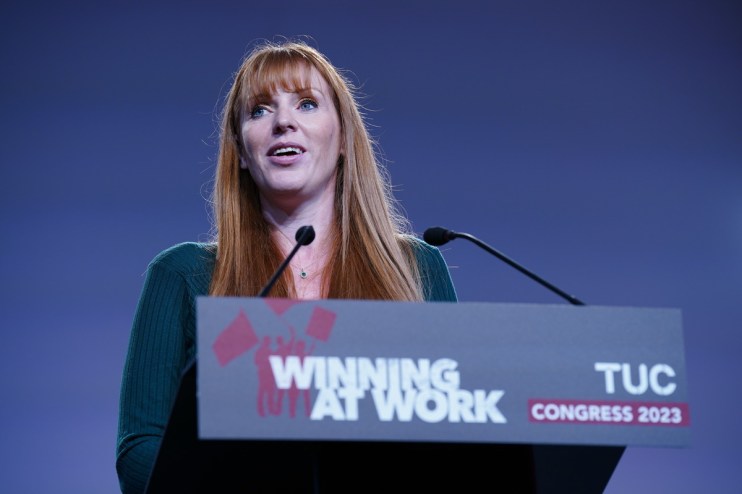Labour’s plans for workers’ rights must ‘strike balance’, experts warn

Labour’s plans to beef up workers’ rights must “strike a balance” between the needs of firms and staff, bosses and experts have told City A.M.
Organisations including BusinessLDN and the British Chamber of Commerce are lobbying the party to ensure its New Deal for Working People “maintains flexibility” and aren’t a “one size fits all” approach.
It comes after the new president of the Confederation for British Industry (CBI), Rupert Soames, told the Financial Times the organisation was giving “private feedback” to the party on “unintended consequences” and wanted the UK to avoid a “European model” of work.
Labour have outlined their pledges, led by Angela Rayner – deputy leader and shadow minister for the future of work – including “day-one” employment rights, banning zero hours contracts and “fire and rehire”.
But in recent weeks two high-profile firms have backtracked on commitments to the real living wage, with Brewdog telling staff the £12-an-hour rate was no longer affordable.
Outsourcing group Capita has now joined the move away from paying the independently calculated salary, which emerged from a campaign to support the lowest-paid workers.
With inflation hitting highs of 11 per cent in 2022 and the ongoing cost of living crisis, unions warn that in many jobs, work has become “incredibly insecure for the workers doing them”.
On Labour’s plan for workers rights, a business source speaking off the record told City A.M.: “They’ve been pretty clear its a main area for them – if they do win the election.
“It’s about accepting the reality that if there is a Labour government it’s going to be a key priority – so how do we make it work for businesses?”
Karim Fatehi, acting CEO of the London Chamber of Commerce and Industry (LCCI), stressed that any future government must develop “pro-business initiatives” in “close consultation” with firms that are “the backbone of our economy and… national prosperity”.
He said Labour’s new deal set out “many positive proposals” but insisted it was “paramount” that the schemes aren’t “treated as a one-size-fits-all approach for all sectors”.
A BusinessLDN spokesperson said: “We’re engaging with Labour on a range of issues to drive growth and boost the UK’s competitiveness.
“We’re keen that Labour’s agenda on workers’ rights strikes a balance between maintaining flexibility that benefits individuals and businesses, while also protecting employees.”
While Jane Gratton, from the British Chamber of Commerce (BCC), said more must be done to “harness the huge pool of untapped talent in the UK” but stressed that “a balance must be struck” and new laws must allow firms to prepare and be “proportionate [and] affordable”.
Employment lawyer Martin Pratt, from RWK Goodman, told City A.M. that removing the two-year qualifying period for unfair dismissal claims could be the “biggest change” and “may result in some employers being hesitant before hiring… [and] in more tribunal claims”.
It could also see a drop in “clearly ill-founded whistleblowing and discrimination claims” which, he said, employees under the two-year period seek to pursue compensation.
Labour, he added, may follow the Netherlands in linking unfair dismissal rights to a probationary period, making the changes “not as radical as they first appear”.
While Unison general secretary Christina McAnea said “good employers have nothing to fear”, adding: “Providing greater job security, getting rid of unfair practices and eradicating poverty pay are essential if the country is to get back on its feet and restore public services”.
A Labour spokesperson said: “We’re a pro-worker, pro-business party and we obviously engage with numerous organisations. But they should be no doubt that making work pay and the new deal for working people will be an important part of our offer to the country.”
Asked whether those seeking to water down pledges should give up, they replied: “Correct.”
